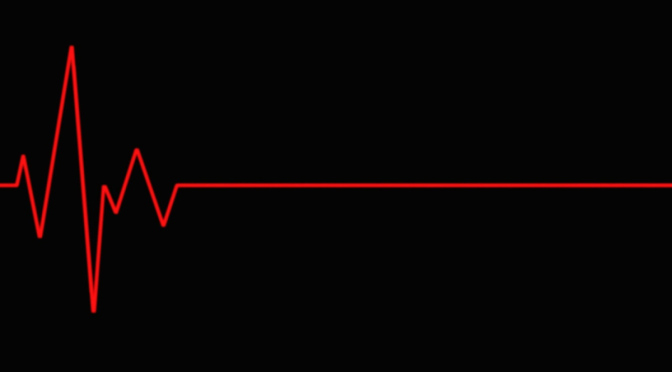Shit Ass Coaching


Garage Strength
I see shit ass coaching ALL the time!
Have you ever trained during a session where the gym is entirely flat? Athletes look like zombies, struggling to stay focused, they are giggling about nonsense yet don’t have the energy to execute simple movements effectively. It’s one of those days where everyone seems miserable, unhappy and frustrated. This energy transfers to the coach and from there we have ourselves a sweet downward spiral. The questions arise as a coach, “What the hell have I done? Can we salvage this session? Is it my fault or theirs?”
Recent Success
Before I dive into being the shittiest coach on the planet, I need to preface this blog with a few key tidbits to make myself feel better. This past week, we have had some of our youth lifters hit MASSIVE Pr’s in the competitive lifts and strength movements.
Along with the big lifts from the Youth lifters, my throwers have been terrorizing the weights this week. Sam Mattis jerked 215k/benched 505lbs/squatted 260k x 2, Alex Rose benched 500lbs, Orazio Cremona doubled 450lbs on the bench, Lucas Warning did the same on the bench, Josh Syrotchen doubled 200k on the bench and Cici Onyekwere has PR’d her squats and snatches this week as well. The only reason I remind myself of these impressive lifts is to ensure I am still doing a solid job in programming...I hope.
Crap Coaching
Volume is my best friend. Usually. I love it, it helps enhance technique and it creates a TON of mechanical loading (figuratively and literally). As I manage volume throughout training blocks, there always comes a point in many athletes training where they get destroyed by the volume. It catches up to them, their sleep isn’t great, they struggle with recovery and then the athlete looks like they have forgotten every technical aspect behind their sport.
This is how I manage peaking. I use something known as my Athlete Reactive Analysis. Even using this and understanding the process behind intensity and volume, I still almost ALWAYS have a 7-10 day period where athletes get caught in the crosshairs of volume. This is not a bad thing but instead a very frustrating point as a coach. My athletes that are competing in meets together will get caught in the volume swamp at the same time, leading to incredible self-doubt as a coach, frustration from the athlete and negative energy swarming throughout the gym.
This creates a nice downward spiral. Training sucks, I get pissed in the gym, lifters miss lifts that they can routinely hit, throwers look like shit and struggle to hold simple positions and when it’s all said and done, I want to put my head through a wall and half the room is in tears from their training situation. How can I see the onslaught of the Volume Swamp?
Distractions
When athletes feel like trash, they look for distractions. They look for discussions to take their minds off of training. They look for reasons to train poorly. They spend time giggling, laughing, wasting energy doing things that will not have a positive impact on their training. Conversations leading into training tend to be worthless, they are literally conversations of distractions, they aren’t focused on their training goals, they aren’t focused on their training cues, they are only worried about how they can forget their fatigue created by the absurd amounts of volume we are hammering.

As soon as I start to see this trend happen, I panic. I love coaching, I love being in the gym, I love when the energy is high, I love when the energy is positive. I FREAKING LOVE COACHING. BUT, I hate when everyone sucks in the gym. So that leads me to my next question: Is it poor recovery or too much volume?
Poor Recovery or Too Much Volume?
The questions just flow in and out of my brain at all times during the Volume Swamp. Are they eating 1.8 grams per kilo body weight (that’d be 155 grams for you Jakey)? Are they sleeping a minimum of 9 hours a night? Are they meditating (Hayley?!?!?!)? Are they tracking all of the data within their training log that I request? Are they doing their mobility at home !?!? The questions bounce around like a pinball machine. Am I a pinball wizard? No, I am not. I believe I tend to be a volume wizard.
The almighty question, is this too much volume? In perspective of physiology, it typically is and that is the goal. This is almost ALWAYS a carryover from the previous program. I design programs where one program is LOADED with volume. The athlete responds well for 2-4 weeks and then they enter the swamp. They enter this zone just after the first week of a program change. I believe this is where massive adaptations continue to occur but the athlete is still recovering from the previous program. Now they are adapting to less volume but their body is still having residual recovery from the volume program. They feel fatigued, they feel drowsy and flat. This zone occurs for about 7-10 days and when they come out of this, they feel like freight trains.

SO! That means as the coach, I MUST hammer the athlete to focus on recovery, to focus on every single aspect to improve their overall performance and to stay engaged with the end goal! And this is where I SUCK! I don’t hound the athlete, I don’t check their body weight, I don’t make sure they are eating enough, I don’t make sure they are sleeping enough and I don’t hound them to smash protein! And that leads us to this blog and today’s training session. Flatlined training with a massive lack of energy.

What to do from here?!?!?
There are multiple realms to improve upon. First, as a coach, I need to realize this is not the end of the world. Recognizing that this is a consistent theme means I do need to hold my athletes a tad bit more accountable with recovery. They LOVE to tell me they do certain things of training without actually doing them. I also believe I need to do a better job of predicting the Volume Swamp. When I am able to do a better job with my prediction, I can then adapt their training by lowering the intensity of their lifts, leading to a more effective training session. If their intensity is lower but they are still getting solid technical work, their mindset will improve while their body adapts.
These are all intricate parts of the training that must be understood. Communication is absolutely key from all parties involved to ensure success is optimized for each situation. Finally, when the frustration sets in as a coach, I need to clarify my points of concern and then do a better job managing the entire group as we move forward. My prediction can be entirely based around practice preparation. When athletes come to training prepared with their cues, their positive energy, their mobility routines and goals, I know they will be ready to smash weights and build toward becoming a champion.
Join The Community
Thank you for reading, watching, commenting, sharing, and spreading all of our information around the web. Want more information like this? Become a part of the journey on Twitter, Facebook, Instagram and YouTube!

Dane Miller
Dane Miller is the owner and founder of Garage Strength Sports Performance. He works with a select handful of elite athletes building comprehensive programs for strength and sports performance. Several times a year he leads a seminar for coaches, trainers, and athletes.

